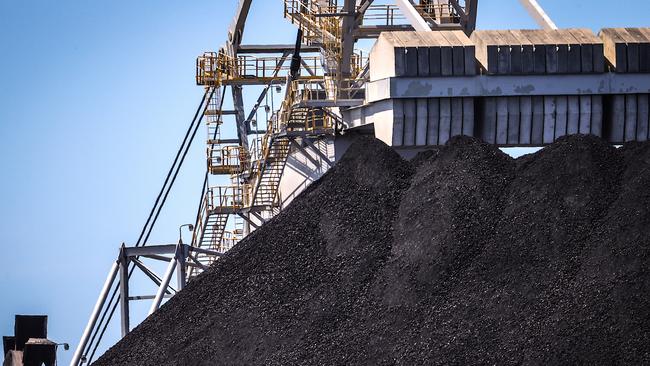Australia needs to skill up older and new workers on road to net zero
The OECD cautions governments not to forget older workers who lose their jobs in clean energy transition

Active labour market programs for workers displaced during the rapid transition to renewable energy and other economic reforms could raise national output by almost $70bn over a dozen years, according to the OECD.
The Paris-based body said cutting red tape for business, fuss-free occupational licensing, more generous parental leave and a better skills system would also improve Australia’s economic dynamism.
Productivity growth has stalled during the past decade, with output per worker falling over the past three years.
In its latest economic survey of Australia, the OECD said there was scope during the move to net zero by 2050 to “ramp up” labour market programs, where government spending was only one-quarter of the rich-country average, while easing significant skills gaps in the energy sector.
Five worker-based structural reforms by governments would raise gross domestic product by a cumulative 2.7 per cent by 2035, equivalent to $68bn in today’s dollars, the OECD said.
To lift productivity growth, the federal government is focusing on building clean-energy capacity, skills development, digital connectivity, women’s participation, migration and the care economy.
Reforms to unlock the nation’s growth potential will be discussed by Anthony Albanese and Jim Chalmers in Melbourne on Thursday at Bold Ideas for a Defining Decade, The Australian-Melbourne Institute Economic and Social Outlook conference.
A session on fresh sources of growth will feature Melbourne Business School dean Ian Harper, who conducted a comprehensive review of competition in 2015, Productivity Commission commissioner Stephen King and the Melbourne Institute’s Guay Lim.
Treasury secretary Steven Kennedy said last month’s employment white paper found job mobility “plays a vital role in enabling our economy to adjust to structural change such as the climate and energy transition”.
“Enabling workers to gain new skills will create a resilient labour force that can adapt and thrive as the economy evolves over time,” Dr Kennedy said last week.
The speakers on a panel about the energy transition will be Australian Energy Producers chief executive Samantha McCulloch, Minerals Council of Australia chief executive Tania Constable and Melbourne University economist Leslie Martin.
The OECD said as the power mix “dramatically shifts” this decade, employment in renewable energy will soar, while it will fall significantly in coal, oil and gas-powered electricity generation.
It used a dynamic global econometric model to illustrate the labour market effects of Australia’s climate policies, including reforms to the safeguard mechanism and the 82 per cent renewable electricity target by 2030.
Employment in renewable energy is estimated to rise more than three-fold this decade in wind and solar power.
On the other hand, employment in fossil fuel electricity generation is projected to fall significantly: coal by 83 per cent, oil 83 per cent and gas 68 per cent.
Research by the e61 Institute, an independent economic think tank, shows workers who lose their jobs when a coal-fired power plant closes are earning only half their pre-redundancy income years after being laid off.
The May budget included funds to establish the Net Zero Authority to support workers in emissions-intensive sectors and to co-ordinate programs and policies across government supporting regions and communities through the net-zero transition.
“Jobs and Skills Australia is currently conducting a capacity study on the workforce needs for the transition to a clean-energy economy,” the OECD said.
“Despite these actions, there is still scope to ramp up active labour market programs in Australia.
“Job-search and training schemes can help reallocate workers from highly polluting industries and address skill mismatches.”
The OECD said public spending on training programs in Australia amounted to 0.03 per cent of GDP in 2020, compared to the OECD average of 0.11 per cent.
“The renewable energy transition will require significant efforts in terms of skilling and training the Australian workforce,” the survey said.
“Some green jobs require high levels of education, work experience and on-the-job training, and use high levels of cognitive and interpersonal skills.
“According to certain estimates, around half of the workers needed for the renewable energy transition are needed in an occupation currently facing national shortages, such as electricians and engineering professionals.
“Importantly, many of these occupations are high-skilled occupations, requiring formal education and training at TAFE (vocational education) or university. Significantly increasing the number of candidates for these high-skilled occupations will therefore take time, careful planning and investment.”







To join the conversation, please log in. Don't have an account? Register
Join the conversation, you are commenting as Logout